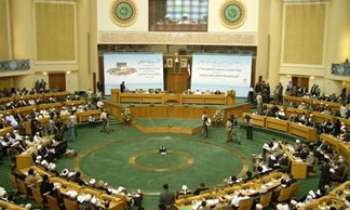LONDON: Faced with slowing sales and dipping profits, foreign media houses are increasingly eyeing India, one of the most attractive markets globally, thanks to a robust economy and easing of stiff investment rules.
India's thriving media industry, which was shut for foreign firms until not long ago, today counts Britain's Pearson, publisher of the Financial Times, Independent News and Media, Turner International and BBC Worldwide as its recent investors.
As the newspaper, television and radio boom rages in India on the back of increasing consumerism and rising literacy levels, a raft of other overseas investors are firming up plans to get a slice of the action.
"China and India are the two main attractions for overseas investors in all sectors," said Ashutosh Srivastava, chief executive officer of Mindshare India, the local arm of the London-headquartered media investments management firm.
"But China is completely closed for investors in the media sector. This has made India a good investment option for foreign investors who are badly battling for retaining market shares in their own countries," Srivastava told IANS.
"All this while the Indian media sector was, more or less, run by the government. Now with the gradual liberalisation in the sector, the overall market is growing very rapidly."
India won a major vote of confidence this month when BBC Worldwide, the British broadcaster's commercial arm, invested four million pounds in the unit's first move into overseas markets.
BBC Worldwide has bought a 20-percent stake in Radio Mid-Day West, a subsidiary of Mid-Day Multimedia, a listed media group that publishes the popular Mid-Day afternoon newspaper in Mumbai.
The joint venture has acquired FM radio licences covering seven of India's biggest cities including Mumbai, New Delhi, Bangalore and Kolkata.
This is the first major investment in radio business after the government said last year it would allow foreign firms to own as much as 20 percent stake in an FM radio station with a view to giving a boost to this capital-intensive sector.
The liberalised norm has also attracted Malaysian pay-TV firm Astro All Asia, which has tied up with two other Indian companies to participate in the latest round of FM radio licence bidding process.
The easing of investment norms in the radio business follows the government's decision to encourage overseas companies to invest in the domestic newspaper and television businesses.
There is a 26-percent cap on foreign ownership of newspapers and TV news channels.
The Financial Times picked up a stake in the Indian business newspaper Business Standard. Independent News and Media bought 26 percent of Indian newspaper group Jagran Prakashan for about 18.6 million pounds last year.
In television, Turner International tied up with Global Broadcast News for a 24-hour English news channel that went on air in November and Reuters agreed to a deal with Times Television for a news and current affairs channel.
N. Bhaskara Rao, chairman of the New Delhi-based Centre for Media Studies, said that the growth rate in all segments of the media sector in the last couple of years in India had been much higher than in the US and Britain.
"The newspaper business is growing at a rate of over 14 percent annually and the country has 27 round-the-clock news channels. Most of the big multi-national companies which spent large amounts on advertisements are also here," he said.
"All these make India a compelling story for overseas media conglomerates. The growth potential is huge and we have not been able to tap a large part of it. The government policies are now very conducive to invest in this country."
According to Rao, the government may further lift the investment cap on foreign investments in newspaper, television and radio businesses over the next two years fuelling massive inflow of funds.









